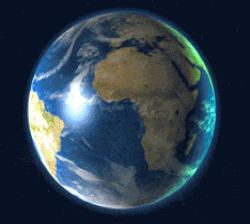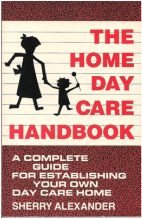
Fifty three years ago, the whole world waited breathlessly until they heard Neil Armstrong transmit loud and clear “Houston, Tranquility Base here. The Eagle has landed.” Apollo 11 made that successful lunar landing on July 24, 1969. Since that day, the National Aeronautics and Space Administration (NASA) has led the United States in space exploration to discover the wonders of our planet, the solar system, and the universe. Yet, some argue that exploration is too costly, too risky for astronauts, and there is a possibility of bringing back an unknown bacteria that would endanger the entire earth. Anyone advocating against space exploration should stop because the benefits of space exploration outweigh the cost, the risk to astronauts is less than walking across the street, the possibility of a space disease coming to earth is just as great as an astronaut taking one into space, and the numerous commercial and scientific advances are all why space exploration is worth it.
One reason space exploration opponents should stop justifying their objections is the comparable cost factor. In contrast to the argument that space exploration is too expensive, the reality is that cost is a factor in everything the government does, and it is no different with space exploration. However, the money spent is not just for the thrill of a few astronauts riding a fast rocket into the unknown. Someone has to plan, design, and build that rocket with all the equipment necessary to send it there in the first place. According to an article, “Why Space Exploration is Always Worthwhile” published on the Planetary Society’s website, an organization led by Bill Nye that explains scientific information to the public, “Public opinion research has shown that people estimate NASA to take up as much as a quarter of the U.S. federal budget, but in fact, NASA’s budget only represents about 0.5% of the total federal budget and the proportion is even smaller for other spacefaring nations.” In 2020, NASA spent $22.7 Billion dollars according to an article in Investopedia by Stephen Simpson as compared to the $56.9 Billion Americans spent on video games and equipment reported by Nex Gen Personal Finance’s blog by Mason Butts. It’s true that NASA’s budget doesn’t count for all monies spent, private companies do it too. In fact, American astrophysicist, planetary scientist, author, and science communicator, Neil deGrasse Tyson stated that “Three quarters of all money spent on space today is for commercial products, for industries that use GPS, for weather satellites, for communication satellites, DirecTV”, (“Why Are We Going into Space” 00:43-00:52). Obviously, space exploration opponents should stop voicing their complaints about the money spent because the cost of space is not expensive when the advances in technology, consumer products, science and even medicines are considered.
Another reason that challengers to space exploration should stop their opposition is the proportionate risk factor. A Scientific American blog titled “Do We Really Need to Send Humans into Space?” acknowledges that astronauts’ lives are at risk. “People venturing into space are fragile: They require a continuous supply of oxygen, water, food and shelter. They must endure long intervals of weightlessness. Their physical capabilities remain constant across generations. And their loss, when it occurs, casts a pall over our would-be joy of identifying with their exploration” (Goldsmith, Rees). In comparison, the lives of all explorers are at risk whether in space or on earth. For example, just like today’s astronauts understand the risk, the early explorers to America knew that too. They had to travel across an uncharted ocean in leaky rat-infested ships with limited provisions to a land they only hoped would be there. However, their sacrifices discovered a new world and here we are today. NASA estimates that there is a 4 percent chance of death when you look at the number of people who went into space and the number that died. That is a lot less than the 17 percent of pedestrians (here on Earth) who died in traffic accidents (“Pedestrian Safety”). Yes, there is risk, but the “Capabilities developed and knowledge gathered from space exploration contribute to ongoing efforts to understand the threat to Earth posed by asteroids, and to devise means for protecting the planet” (“Benefits Stemming From Space Exploration-NASA”). Astronauts know the risk, and they accept it just like those explorers looking for North America across 4,000 miles of open ocean in the 15th century. It was worth it to the early explorers and according to Christa McAuliffe, teacher and astronaut, who lost her life aboard the Shuttle Challenger, “Space is for everybody. That’s our new frontier out there, and it’s everybody’s business to know about space.” Obviously, space exploration naysayers should recognize that risk and exploration go hand in hand and stop using the possible hazard as an argument against discovering what is beyond our atmosphere.
Those who dispute space exploration because of the possibility of an unknown bacteria entering the Earth should consider the scientific preparation factors. Even if astronauts think space is worth the possible danger, it is not logical to think that unknown microbes or bacteria don’t even exist in space. We have them on Earth so other planets must have their own too. A leading astrobiologist and cosmologist, Paul Davies even “warned that viruses may not only be found on Earth, but might occur – should life exist – elsewhere in the universe.” Yet, it seems that the bacteria our astronauts take with them from Earth into space, the moon, or even Mars would be just as dangerous to that planet as bacteria that came from that planet to us on earth. No one wants to risk bringing back something contagious to the earth and scientists are always on guard and taking precautions. For example, scientists are using laboratories in space to find how to stop and or treat diseases on earth by finding “A protein that causes disease and a medicine that suppresses it” according to a NASA editor, Michael Johnson. In addition, there is always a possibility of some unknown bacteria entering our atmosphere from space by a meteor. And, you have to agree that astronauts could possibly bring something back, but there are so many things being found out through our scientific experiments in space to prolong life, to cut diseases, and to find cures that the benefits far outweigh the “possibility” of bringing a deadly bacteria back to earth far outweighs (Johnson). Surely, space exploration skeptics must recognize that while it is possible that a contagion could come to earth, the reward of finding causes and cures for diseases that already plague Earth far outweighs the risk.
A third critique of people advocating against space exploration is that there are few results that help life on Earth. That is definitely not true. The amount of technological advances and the consumer products that have been developed are too numerous to explain in this essay. For example, just a few of the items and technology that have advanced and benefited everyday life on Earth from space exploration include the “cameras in Smartphones, invisible braces, Lasik cochlear implants, memory foam, portable cordless vacuums” (Vishal). In addition, “Space exploration has contributed to many diverse aspects of everyday life, from solar panels to implantable heart monitors, from cancer therapy to light‐ weight materials, and from water‐purification systems to improved computing systems and to a global search‐and‐rescue system” (“Benefits Stemming from Space Exploration-NASA”). Added to all of that are the wonders we have learned about the solar system, the universe, and just how small Earth is in comparison to the galaxies upon galaxies. Then there is the monitoring that is constantly on the watch for asteroids that might hit Earth. “Capabilities developed and knowledge gathered from space exploration contribute to ongoing efforts to understand the threat to Earth posed by asteroids, and to devise means for protecting the planet” (“Benefits Stemming from Space Exploration-NASA”). All of these advances come from space exploration. Clearly, people who are critical of space exploration should stop, because the results of numerous technological advances are well documented and one in particular, the cell phone, makes communication easier than using two cups and a string.
In the final analysis, the argument that space exploration is too costly, too risky for astronauts, opens the possibility of bringing back an unknown bacteria that would endanger the entire earth has some merit and concerns that should be considered. On the whole, however, anyone advocating against space exploration should stop, because the benefits of space exploration outweigh the cost, the risk to astronauts is less than walking across the street, the possibility of a space disease coming to earth is just as great as an astronaut taking one into space, and the numerous commercial and scientific advances including the added protection from asteroids and a renewed understanding of the universe is worth it.
Works Cited List
Amadeo, Kimberly. “How $1 Spent on NASA Adds $8 to the Economy.” The Balance, The Balance, 20 Jan. 2022, https://www.thebalance.com/nasa-budget-current-funding-and-history-3306321.
Benefits Stemming from Space Exploration - NASA. https://www.nasa.gov/sites/default/files/files/Benefits-Stemming-from-Space-Exploration-2013-TAGGED.pdf.
Berger, Eric. “Report Finds That US Accounts for More than Half of Global Space Spending.” – Ars Technica, Ars Technica, 6 Jan. 2022, https://arstechnica.com/science/2022/01/report-finds-that-us-accounts-for-more-than-half-of-global-space-spending/?amp=1.
Butts, Mason. “Ngpf Blog.” QoD: How Much Money Did Americans Spend on Video Games in 2020? - Blog, https://www.ngpf.org/blog/question-of-the-day/question-of-the-day-how-much-money-did-americans-spend-on-video-games-in-2020/#:~:text=%22Spending%20on%20video%20games%20set,percent%20increase%20compared%20to%202019.
Carr, Belinda. “Is Space Exploration a Waste of Money? - Youtube.” Youtube, 13 Feb. 2021, https://www.youtube.com/watch?v=f3GycoUxRQ4.
Davis, Nicola. “Viruses May Exist 'Elsewhere in the Universe', Warns Scientists.” The Guardian, Guardian News and Media, 6 Sept. 2021, https://www.theguardian.com/science/2021/sep/06/viruses-may-exist-elsewhere-in-the-universe-warns-scientist.
Foust, Jeff. “Weighing the Risks of Human Spaceflight.” The Space Review: Weighing the Risks of Human Spaceflight (Page 2), https://www.thespacereview.com/article/36/2.
Goldsmith, Donald, and Martin Rees. “Do We Really Need to Send Humans into Space?” Scientific American Blog Network, Scientific American, 6 Mar. 2020, https://blogs.scientificamerican.com/observations/do-we-really-need-to-send-humans-into-space/.
Johnson, Michael. “Finding the Keys in Space to Treat Diseases on Earth.” NASA, NASA, 6 Mar. 2019, https://www.nasa.gov/mission_pages/station/research/news/b4h-3rd/eds-space-research-to-treat-earth-diseases.
Lichtenstein, Drew. “Bad Things about Space Exploration.” Sciencing, 2 Mar. 2019, https://sciencing.com/bad-things-space-exploration-8523069.html.
“Majority of Americans Believe Space Exploration Remains Essential.” Pew Research Center Science & Society, Pew Research Center, 19 Aug. 2021, https://www.pewresearch.org/science/2018/06/06/majority-of-americans-believe-it-is-essential-that-the-u-s-remain-a-global-leader-in-space/.
Neil DeGrasse Tyson: Why Are We Going into Space ... - Youtube. Dubai Future Talks, 27 Apr. 2020, https://www.youtube.com/watch?v=pOnuLXh20uE.
“Pedestrian Safety.” Centers for Disease Control and Prevention, Centers for Disease Control and Prevention, 6 Mar. 2020, https://www.cdc.gov/transportationsafety/pedestrian_safety/index.html.
Simpson, Stephen D. “The Reality of Investing in Space Exploration.” Investopedia, Investopedia, 21 Sept. 2021, https://www.investopedia.com/financial-edge/0712/the-reality-of-investing-in-space-exploration.aspx.
Stone, Kevin R., and Orthopedic surgeon. “Top Five Reasons to Avoid Space Travel.” The Stone Clinic: World-Class Orthopedic Surgery & Rehabilitation, 5 May 2020, https://www.stoneclinic.com/blog/top-five-reasons-avoid-space-travel.
Thakur, Vishal. “What Are Some Common Things We Use That Have Come from Space Tech?” Science ABC, Science ABC, 16 Jan. 2022, https://www.scienceabc.com/nature/universe/what-are-some-common-things-we-use-that-have-come-from-space-tech.html.
“Why Space Exploration Is Always Worthwhile.” The Planetary Society, https://www.planetary.org/articles/space-exploration-is-always-worthwhile#:~:text=Spending%20on%20space%20supports%20highly,the%20world's%20most%20pressing%20problems.
One reason space exploration opponents should stop justifying their objections is the comparable cost factor. In contrast to the argument that space exploration is too expensive, the reality is that cost is a factor in everything the government does, and it is no different with space exploration. However, the money spent is not just for the thrill of a few astronauts riding a fast rocket into the unknown. Someone has to plan, design, and build that rocket with all the equipment necessary to send it there in the first place. According to an article, “Why Space Exploration is Always Worthwhile” published on the Planetary Society’s website, an organization led by Bill Nye that explains scientific information to the public, “Public opinion research has shown that people estimate NASA to take up as much as a quarter of the U.S. federal budget, but in fact, NASA’s budget only represents about 0.5% of the total federal budget and the proportion is even smaller for other spacefaring nations.” In 2020, NASA spent $22.7 Billion dollars according to an article in Investopedia by Stephen Simpson as compared to the $56.9 Billion Americans spent on video games and equipment reported by Nex Gen Personal Finance’s blog by Mason Butts. It’s true that NASA’s budget doesn’t count for all monies spent, private companies do it too. In fact, American astrophysicist, planetary scientist, author, and science communicator, Neil deGrasse Tyson stated that “Three quarters of all money spent on space today is for commercial products, for industries that use GPS, for weather satellites, for communication satellites, DirecTV”, (“Why Are We Going into Space” 00:43-00:52). Obviously, space exploration opponents should stop voicing their complaints about the money spent because the cost of space is not expensive when the advances in technology, consumer products, science and even medicines are considered.
Another reason that challengers to space exploration should stop their opposition is the proportionate risk factor. A Scientific American blog titled “Do We Really Need to Send Humans into Space?” acknowledges that astronauts’ lives are at risk. “People venturing into space are fragile: They require a continuous supply of oxygen, water, food and shelter. They must endure long intervals of weightlessness. Their physical capabilities remain constant across generations. And their loss, when it occurs, casts a pall over our would-be joy of identifying with their exploration” (Goldsmith, Rees). In comparison, the lives of all explorers are at risk whether in space or on earth. For example, just like today’s astronauts understand the risk, the early explorers to America knew that too. They had to travel across an uncharted ocean in leaky rat-infested ships with limited provisions to a land they only hoped would be there. However, their sacrifices discovered a new world and here we are today. NASA estimates that there is a 4 percent chance of death when you look at the number of people who went into space and the number that died. That is a lot less than the 17 percent of pedestrians (here on Earth) who died in traffic accidents (“Pedestrian Safety”). Yes, there is risk, but the “Capabilities developed and knowledge gathered from space exploration contribute to ongoing efforts to understand the threat to Earth posed by asteroids, and to devise means for protecting the planet” (“Benefits Stemming From Space Exploration-NASA”). Astronauts know the risk, and they accept it just like those explorers looking for North America across 4,000 miles of open ocean in the 15th century. It was worth it to the early explorers and according to Christa McAuliffe, teacher and astronaut, who lost her life aboard the Shuttle Challenger, “Space is for everybody. That’s our new frontier out there, and it’s everybody’s business to know about space.” Obviously, space exploration naysayers should recognize that risk and exploration go hand in hand and stop using the possible hazard as an argument against discovering what is beyond our atmosphere.
Those who dispute space exploration because of the possibility of an unknown bacteria entering the Earth should consider the scientific preparation factors. Even if astronauts think space is worth the possible danger, it is not logical to think that unknown microbes or bacteria don’t even exist in space. We have them on Earth so other planets must have their own too. A leading astrobiologist and cosmologist, Paul Davies even “warned that viruses may not only be found on Earth, but might occur – should life exist – elsewhere in the universe.” Yet, it seems that the bacteria our astronauts take with them from Earth into space, the moon, or even Mars would be just as dangerous to that planet as bacteria that came from that planet to us on earth. No one wants to risk bringing back something contagious to the earth and scientists are always on guard and taking precautions. For example, scientists are using laboratories in space to find how to stop and or treat diseases on earth by finding “A protein that causes disease and a medicine that suppresses it” according to a NASA editor, Michael Johnson. In addition, there is always a possibility of some unknown bacteria entering our atmosphere from space by a meteor. And, you have to agree that astronauts could possibly bring something back, but there are so many things being found out through our scientific experiments in space to prolong life, to cut diseases, and to find cures that the benefits far outweigh the “possibility” of bringing a deadly bacteria back to earth far outweighs (Johnson). Surely, space exploration skeptics must recognize that while it is possible that a contagion could come to earth, the reward of finding causes and cures for diseases that already plague Earth far outweighs the risk.
A third critique of people advocating against space exploration is that there are few results that help life on Earth. That is definitely not true. The amount of technological advances and the consumer products that have been developed are too numerous to explain in this essay. For example, just a few of the items and technology that have advanced and benefited everyday life on Earth from space exploration include the “cameras in Smartphones, invisible braces, Lasik cochlear implants, memory foam, portable cordless vacuums” (Vishal). In addition, “Space exploration has contributed to many diverse aspects of everyday life, from solar panels to implantable heart monitors, from cancer therapy to light‐ weight materials, and from water‐purification systems to improved computing systems and to a global search‐and‐rescue system” (“Benefits Stemming from Space Exploration-NASA”). Added to all of that are the wonders we have learned about the solar system, the universe, and just how small Earth is in comparison to the galaxies upon galaxies. Then there is the monitoring that is constantly on the watch for asteroids that might hit Earth. “Capabilities developed and knowledge gathered from space exploration contribute to ongoing efforts to understand the threat to Earth posed by asteroids, and to devise means for protecting the planet” (“Benefits Stemming from Space Exploration-NASA”). All of these advances come from space exploration. Clearly, people who are critical of space exploration should stop, because the results of numerous technological advances are well documented and one in particular, the cell phone, makes communication easier than using two cups and a string.
In the final analysis, the argument that space exploration is too costly, too risky for astronauts, opens the possibility of bringing back an unknown bacteria that would endanger the entire earth has some merit and concerns that should be considered. On the whole, however, anyone advocating against space exploration should stop, because the benefits of space exploration outweigh the cost, the risk to astronauts is less than walking across the street, the possibility of a space disease coming to earth is just as great as an astronaut taking one into space, and the numerous commercial and scientific advances including the added protection from asteroids and a renewed understanding of the universe is worth it.
Works Cited List
Amadeo, Kimberly. “How $1 Spent on NASA Adds $8 to the Economy.” The Balance, The Balance, 20 Jan. 2022, https://www.thebalance.com/nasa-budget-current-funding-and-history-3306321.
Benefits Stemming from Space Exploration - NASA. https://www.nasa.gov/sites/default/files/files/Benefits-Stemming-from-Space-Exploration-2013-TAGGED.pdf.
Berger, Eric. “Report Finds That US Accounts for More than Half of Global Space Spending.” – Ars Technica, Ars Technica, 6 Jan. 2022, https://arstechnica.com/science/2022/01/report-finds-that-us-accounts-for-more-than-half-of-global-space-spending/?amp=1.
Butts, Mason. “Ngpf Blog.” QoD: How Much Money Did Americans Spend on Video Games in 2020? - Blog, https://www.ngpf.org/blog/question-of-the-day/question-of-the-day-how-much-money-did-americans-spend-on-video-games-in-2020/#:~:text=%22Spending%20on%20video%20games%20set,percent%20increase%20compared%20to%202019.
Carr, Belinda. “Is Space Exploration a Waste of Money? - Youtube.” Youtube, 13 Feb. 2021, https://www.youtube.com/watch?v=f3GycoUxRQ4.
Davis, Nicola. “Viruses May Exist 'Elsewhere in the Universe', Warns Scientists.” The Guardian, Guardian News and Media, 6 Sept. 2021, https://www.theguardian.com/science/2021/sep/06/viruses-may-exist-elsewhere-in-the-universe-warns-scientist.
Foust, Jeff. “Weighing the Risks of Human Spaceflight.” The Space Review: Weighing the Risks of Human Spaceflight (Page 2), https://www.thespacereview.com/article/36/2.
Goldsmith, Donald, and Martin Rees. “Do We Really Need to Send Humans into Space?” Scientific American Blog Network, Scientific American, 6 Mar. 2020, https://blogs.scientificamerican.com/observations/do-we-really-need-to-send-humans-into-space/.
Johnson, Michael. “Finding the Keys in Space to Treat Diseases on Earth.” NASA, NASA, 6 Mar. 2019, https://www.nasa.gov/mission_pages/station/research/news/b4h-3rd/eds-space-research-to-treat-earth-diseases.
Lichtenstein, Drew. “Bad Things about Space Exploration.” Sciencing, 2 Mar. 2019, https://sciencing.com/bad-things-space-exploration-8523069.html.
“Majority of Americans Believe Space Exploration Remains Essential.” Pew Research Center Science & Society, Pew Research Center, 19 Aug. 2021, https://www.pewresearch.org/science/2018/06/06/majority-of-americans-believe-it-is-essential-that-the-u-s-remain-a-global-leader-in-space/.
Neil DeGrasse Tyson: Why Are We Going into Space ... - Youtube. Dubai Future Talks, 27 Apr. 2020, https://www.youtube.com/watch?v=pOnuLXh20uE.
“Pedestrian Safety.” Centers for Disease Control and Prevention, Centers for Disease Control and Prevention, 6 Mar. 2020, https://www.cdc.gov/transportationsafety/pedestrian_safety/index.html.
Simpson, Stephen D. “The Reality of Investing in Space Exploration.” Investopedia, Investopedia, 21 Sept. 2021, https://www.investopedia.com/financial-edge/0712/the-reality-of-investing-in-space-exploration.aspx.
Stone, Kevin R., and Orthopedic surgeon. “Top Five Reasons to Avoid Space Travel.” The Stone Clinic: World-Class Orthopedic Surgery & Rehabilitation, 5 May 2020, https://www.stoneclinic.com/blog/top-five-reasons-avoid-space-travel.
Thakur, Vishal. “What Are Some Common Things We Use That Have Come from Space Tech?” Science ABC, Science ABC, 16 Jan. 2022, https://www.scienceabc.com/nature/universe/what-are-some-common-things-we-use-that-have-come-from-space-tech.html.
“Why Space Exploration Is Always Worthwhile.” The Planetary Society, https://www.planetary.org/articles/space-exploration-is-always-worthwhile#:~:text=Spending%20on%20space%20supports%20highly,the%20world's%20most%20pressing%20problems.

 RSS Feed
RSS Feed



